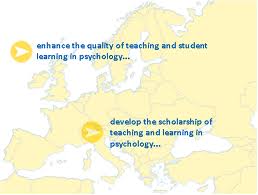May 20, 2011
by Mo Pamplin
 Last week I ran a workshop on iTunes U in the schools of Arts and Social Sciences at City. I wanted to give people an update on how far we have got with introducing podcasting in the Schools, as well as going over the basics of what iTunes U is and how to access the content we have on there. As it happened, every member of the audience owned an iPod, iPad or iPhone,which made my job a little easier.
Last week I ran a workshop on iTunes U in the schools of Arts and Social Sciences at City. I wanted to give people an update on how far we have got with introducing podcasting in the Schools, as well as going over the basics of what iTunes U is and how to access the content we have on there. As it happened, every member of the audience owned an iPod, iPad or iPhone,which made my job a little easier.
This is the first year in which City has been recording lectures, seminars and conferences and hosting them on iTunes U. In Arts and Social Sciences, we’ve published guest lectures, research seminars and conferences in Cultural Policy and Management, Economics, International Politics, Music, Psychology, Publishing and Sociology.
Besides recording lectures – which can be a valuable tool to aid students’ revision, boost the research profile of the university, and expand the audience for our events – the big challenge for our iTunes U and podcasting project is to start creating more tailor-made content, which takes advantage of the podcast’s key characteristics – mobility, brevity and ‘linkability’. Research and best practice (references below) into educational podcasting suggests a number of ways in which downloadable, subscribable audio/video files can help students, and we’re planning to get underway with some of these over the summer and in the coming year.
In particular, we’re hoping to interview academic staff in different departments about their careers, their research interests, and talk in detail about the issues that are central to the courses they teach on. We are also working on a series called ‘Introduction to…’ which discusses what a potential applicant should expect when they choose a subject to study at university. Further, we need to explore the more pedagogic applications of podcasting, such as creating revision presentations for students before exams, giving tasters or teasers ahead of new modules, and as a way of giving supplementary explanation of difficult concepts and topics beyond what can be given in lectures.
A number of questions were raised during the presentation, including the issue of how we can monitor usage and downloads from our iTunes U site. Now that we have these stats, we can use them to inform the content, format and pitch of our future material. Another question was around the ability to link to podcast episodes from and to iTunes. iTunes allows you to link directly to a podcast series, so you can email or tweet the URL of a podcast’s location in the iTunes store. Here’s a link to one of our most recently updated podcasts.
If you are a member of staff in Arts and Social Sciences at City University and you are interested in experimenting with podcasting, or if you already have some experience and want to get more involved, please contact Mo Pamplin or a member of the Education Support Team.
References
Cheetham, J., S. Ackerman and K. Christoph (2009). “Podcasting: a Stepping Stone to Pedagogical Innovation”. [Online] http://engage.doit.wisc.edu/edu_podcasting/. Accessed 18/05/11.
Division of Information Technology, University of Wisconsin (ND). “Teaching & Learning with Podcasting”.[Online] http://engage.wisc.edu/podcasting/teaching/index.html. Accessed 18/05/11.
Guertin, L. et al (2007). “Questioning the Student Use of and Desire for Lecture Podcasts”. Journal of Online Learning and Teaching, 3 (2), 2007. [Online] http://jolt.merlot.org/vol3no2/guertin.htm. Accessed 18/05/11.
 With the help of the Learning Development Centre and Information Services, the Education Support Team piloted a small-scale lecture capture project in the Spring term 2012. The project report is available to read here, including case studies of use, analysis of staff and student evaluations, and usage statistics.
With the help of the Learning Development Centre and Information Services, the Education Support Team piloted a small-scale lecture capture project in the Spring term 2012. The project report is available to read here, including case studies of use, analysis of staff and student evaluations, and usage statistics.



